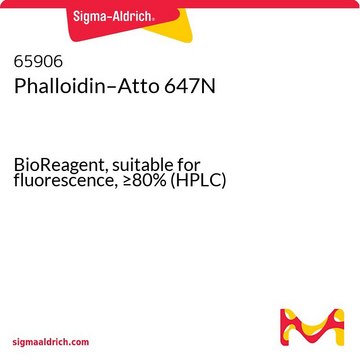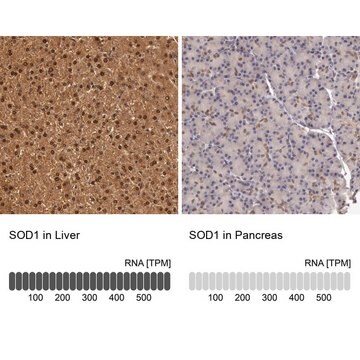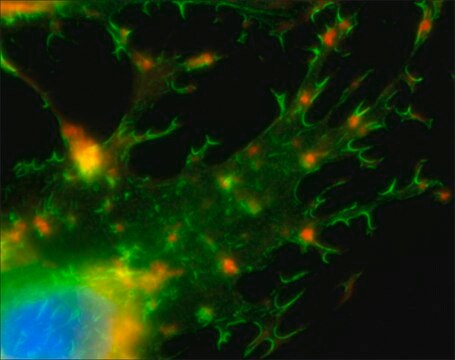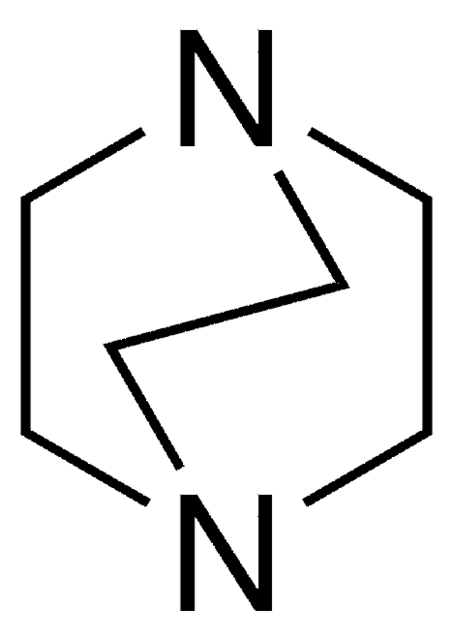07373
Phalloidin–Atto 740
BioReagent, suitable for fluorescence
Sinónimos:
Atto 740–Phalloidin
About This Item
Productos recomendados
product line
BioReagent
Quality Level
assay
≥90.0% (HPLC)
form
powder
manufacturer/tradename
ATTO-TEC GmbH
transmittance
254 nm
740 nm
fluorescence
λex 750 nm; λem 764 nm in 0.1 M phosphate pH 7.0
UV absorption
λ: 739 -745 nm Amax
suitability
suitable for fluorescence
storage temp.
−20°C
General description
Atto 740 is a pH sensitive product. While practically stable up to pH 7.4 (PBS-buffer), it slowly degrades at higher pH. If exposed to higher pH for coupling purposes, we recommend reducing the pH immediately after completion of the reaction.
Phalloidin is a fungal toxin isolated from the poisonous mushroom Amanita phalloides. Its toxicity is attributed to the ability to bind F actin in liver and muscle cells. As a result of binding phalloidin, actin filaments become strongly stabilized. Phalloidin has been found to bind only to polymeric and oligomeric forms of actin, and not to monomeric actin. The dissociation constant of the actin-phalloidin complex has been determined to be on the order of 3 x 10-8. Phalloidin differs from amanitin in rapidity of action; at high dose levels, death of mice or rats occurs within 1 or 2 hours. Fluorescent conjugates of phalloidin are used to label actin filaments for histological applications. Some structural features of phalloidin are required for the binding to actin. However, the side chain of amino acid 7 (g-d-dihydroxyleucine) is accessible for chemical modifications without appreciable loss of affinity for actin.
find more information here
Packaging
Legal Information
¿No encuentra el producto adecuado?
Pruebe nuestro Herramienta de selección de productos.
Storage Class
11 - Combustible Solids
wgk_germany
WGK 3
flash_point_f
Not applicable
flash_point_c
Not applicable
Certificados de análisis (COA)
Busque Certificados de análisis (COA) introduciendo el número de lote del producto. Los números de lote se encuentran en la etiqueta del producto después de las palabras «Lot» o «Batch»
¿Ya tiene este producto?
Encuentre la documentación para los productos que ha comprado recientemente en la Biblioteca de documentos.
Nuestro equipo de científicos tiene experiencia en todas las áreas de investigación: Ciencias de la vida, Ciencia de los materiales, Síntesis química, Cromatografía, Analítica y muchas otras.
Póngase en contacto con el Servicio técnico






